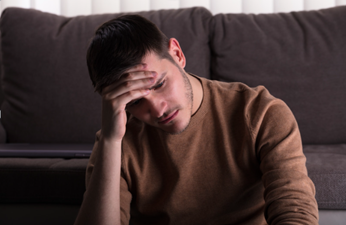Prostate Problems and Treatments
Prostate Problems and Treatments :
If you’re a male, you may be at risk of prostate problems as you age. The prostate gland is a small gland located below the bladder and in front of the rectum. It is a part of the male reproductive system and produces fluid that makes up a part of semen. As men age, prostate problems become more likely and prostate problems treatments more likely too.
Prostate problems can range from inflammation and swelling to enlargement and cancer. The most common prostate problems are prostatitis, benign prostatic hyperplasia (BPH), and prostate cancer. Each condition has its own set of symptoms and treatment options. It’s important to get a proper diagnosis from a healthcare provider to determine the best course of action.
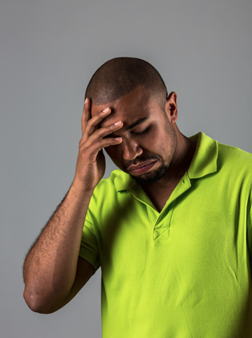
What are the first signs of prostate problems?
As a man, you may experience some prostate problems as you get older. The prostate is a small gland located below the bladder and in front of the rectum. It surrounds the urethra, which is the tube that carries urine and semen out of the body.
Prostate problems can cause a range of symptoms, including difficulty urinating, frequent urination, weak urine flow, and pain or discomfort in the pelvic area. There are several types of prostate problems, including:
- Prostatitis: inflammation or swelling of the prostate gland.
- Benign prostatic hyperplasia (BPH): enlargement of the prostate gland, which can cause problems with urination.
- Prostate cancer: a malignant tumor that grows in the prostate gland.
Not all Prostate Problems are cancerous
It’s important to note that not all prostate problems are cancerous. In fact, most prostate problems are not cancerous and can be treated with medication or other non-invasive treatments.
If you are experiencing any symptoms of prostate problems, it’s important to see your doctor for an evaluation. Your doctor can perform a physical exam, order tests, and recommend appropriate treatment based on your individual needs.
Warning Signs: What may be my Prostate Problems and Treatments?
If you are experiencing any of the following symptoms, it may be a sign of prostate problems:
- Frequent need to urinate, especially at night
- Difficulty starting urination or a weak urine stream
- Pain or burning sensation during urination
- Blood in the urine or semen
- Painful ejaculation
- Pain in the lower back, hips, or thighs
- Difficulty getting or maintaining an erection
- Feeling like your bladder is not empty after urination
If you are experiencing any of these symptoms, it is important to see your doctor for an evaluation. While these symptoms may be caused by a variety of conditions, they can also be a sign of prostate cancer.
 Have Regular Prostate Exams
Have Regular Prostate Exams
It is important to note that not all prostate problems cause symptoms, especially in the early stages. This is why regular prostate exams are important for men over the age of 50, or earlier if you have a family history of prostate cancer.
In addition to regular exams, maintaining a healthy lifestyle can also help reduce your risk of prostate problems. Eating a balanced diet, exercising regularly, and avoiding smoking and excessive alcohol consumption can all help keep your prostate healthy.
If you are experiencing any symptoms of prostate problems or have concerns about your prostate health, talk to your doctor. They can help determine the cause of your symptoms and recommend the appropriate treatment options.
Causes of Prostate Problems and Treatments:
What does an enlarged prostate do?
If you are experiencing prostate problems, it is important to understand the potential causes. While some causes are unavoidable, others can be prevented or managed with the right lifestyle choices. Here are some potential causes of prostate problems:
Low Testosterone and Prostate Problems
Low testosterone levels can contribute to prostate problems. Testosterone helps maintain prostate health, so when levels are low, the prostate may become enlarged. This can cause urinary problems and other symptoms. If you have low testosterone levels, talk to your doctor about treatment options.
Alcohol and Prostate Problems
Heavy drinking can also contribute to prostate problems. Alcohol can irritate the prostate and cause inflammation, which can lead to urinary problems. If you drink alcohol, try to limit your consumption to moderate levels.
COVID-19 Vaccine and Prostate Problems
There have been some reports of prostate problems after receiving the COVID-19 vaccine. While the exact link is not yet clear, it is important to monitor any symptoms you experience after getting the vaccine. If you have concerns, talk to your doctor.
Vasectomy and Prostate Problems
Some studies suggest that a vasectomy may increase the risk of prostate problems. However, the link is not yet clear, and more research is needed to fully understand the relationship between vasectomy and prostate health.
 Stress and Prostate Problems
Stress and Prostate Problems
Stress can also contribute to prostate problems. When you are stressed, your body produces hormones that can cause inflammation and other problems. This can lead to urinary problems and other symptoms. If you are experiencing stress, try to find ways to manage it, such as exercise or relaxation techniques.
By understanding the potential causes of prostate problems, you can take steps to prevent or manage them. Talk to your doctor about any concerns you have, and make healthy lifestyle choices to support prostate health.
RELATED ARTICLES:
Best Anti Aging Secrets
How To Treat Anxiety Disorders
Diagnosis of Prostate Problems and Treatments:
What are potential issues with the prostate
If you are experiencing symptoms of prostate problems, it is important to see a doctor for an accurate diagnosis. Your doctor will perform a physical exam and may recommend further tests to determine the cause of your symptoms.
Tests for Prostate Problems – Prostate Cancer Symptoms…
The following tests may be used to diagnose prostate problems:
- Digital rectal exam (DRE): During a DRE, your doctor will insert a gloved, lubricated finger into your rectum to feel for any abnormalities in your prostate.
- Prostate-specific antigen (PSA) blood test: A PSA blood test measures the level of PSA in your blood. Elevated PSA levels can indicate prostate inflammation, enlargement, or cancer.
- Urinary flow test: This test measures the speed and volume of your urine flow. It can help determine if your symptoms are caused by an obstruction in your urinary tract.
- Prostate biopsy: If your doctor suspects prostate cancer, they may recommend a biopsy. During a biopsy, a small sample of tissue is taken from your prostate and examined under a microscope.
It is important to note that not all prostate problems require treatment. Your doctor will work with you to determine the best course of action based on your individual needs and circumstances.
Prostate Problems:
Medical and Alternative Treatments
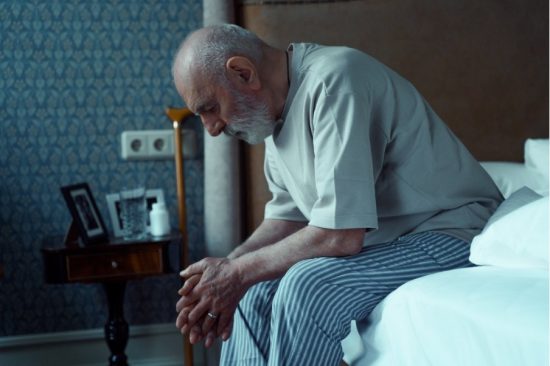
If you are experiencing prostate problems, there are several treatment options available to you. In this section, we will discuss two common treatments for prostate problems: medication and alternative medicines.
Prostate Problems and Treatments – Medication for Prostate
Medication is often the first line of treatment for prostate problems. Your doctor may prescribe medications to help shrink the prostate or relax the muscles near your prostate to ease symptoms. Some common medications used to treat prostate problems include:
- Alpha blockers: These medications relax the muscles in the prostate and bladder neck, making it easier to urinate. Examples include tamsulosin and alfuzosin.
- 5-alpha reductase inhibitors: These medications help shrink the prostate by blocking the production of a hormone that contributes to prostate growth. Examples include finasteride and dutasteride.
- Combination therapy: Your doctor may prescribe a combination of alpha blockers and 5-alpha reductase inhibitors for more severe symptoms.
It is important to follow your doctor’s instructions carefully when taking medication for prostate problems. Some medications can have side effects, such as dizziness and low blood pressure.
Alternative Medicines for Prostate
In addition to traditional medication, some people may choose to try alternative medicines to treat their prostate problems. While there is limited scientific evidence to support the use of alternative medicines for prostate problems, some people find them helpful. Some common alternative medicines used to treat prostate problems include:
- Saw palmetto: This herbal supplement is thought to help reduce the size of the prostate and improve urinary symptoms.
- Pygeum: This herbal supplement is thought to help reduce inflammation and improve urinary symptoms.
- Acupuncture: This traditional Chinese medicine practice involves inserting thin needles into the skin at specific points to help relieve pain and other symptoms.
It is important to talk to your doctor before trying any alternative medicines for prostate problems. Some supplements can interact with medications or have side effects of their own.
Overall, there are several treatment options available for prostate problems. Your doctor can help you determine which treatment is best for you based on your symptoms and medical history.
Prostate Problems and Treatments
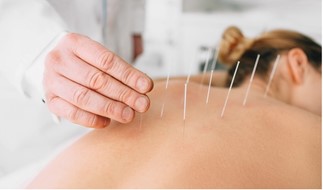
If you are a man experiencing prostate problems, you may be wondering if it will affect your ability to father a child. The answer is not straightforward, as it depends on the specific prostate problem you are facing.
For instance, prostatitis, which is inflammation of the prostate gland, is usually not linked to fertility issues. However, an enlarged prostate, which is a common problem in older men, can cause problems with ejaculation and potentially affect fertility. This is because the prostate gland is responsible for producing semen, which is necessary for fertilization.
Fertility At Risk
In some cases, prostate cancer treatment can also affect fertility. Radiation therapy and chemotherapy can damage the testicles, which can lead to a decrease in sperm production. Surgery to remove the prostate gland can also damage the nerves and muscles responsible for ejaculation.
If you are concerned about your fertility due to prostate problems, it is important to talk to your doctor. They can help you determine the cause of your problem and recommend appropriate treatment options.
Improved Fertility?
In some cases, lifestyle changes such as exercise, a healthy diet, and stress reduction techniques can help improve prostate health and potentially increase fertility. Additionally, certain medications may be prescribed to help manage prostate problems and improve fertility.
Overall, while prostate problems can potentially affect fertility, it is not a guarantee. With the right treatment and management, it is possible to maintain fertility and father a child.
Prostate Problems and Other Health Issues
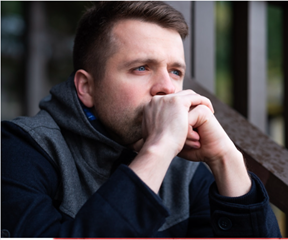
If you are experiencing prostate problems, it is important to know that they can be connected to other health issues as well. Here are some common health issues that can be related to prostate problems:
Enlarged Prostate and Sinus Problems
An enlarged prostate can sometimes cause sinus problems. This is because the prostate gland is located near the bladder and the urethra, which are connected to the sinuses. When the prostate gland becomes enlarged, it can put pressure on these areas and cause sinus problems such as congestion and difficulty breathing.
Prostate Cancer and Urination Problems
Prostate cancer can cause a variety of urination problems, including frequent urination, difficulty starting and stopping urination, and weak urine flow. These symptoms can be caused by the cancer itself or by treatments such as radiation therapy or surgery.
Prostate Problems and Digestive Issues
Prostate problems can also be related to digestive issues such as constipation. This is because the prostate gland is located near the rectum, and an enlarged prostate can put pressure on the rectum and cause constipation.
If you are experiencing any of these health issues along with prostate problems, it is important to talk to your doctor. They can help determine if there is a connection between your symptoms and develop a treatment plan that addresses all of your health concerns.
Prostate Problems and Treatments
Conclusions
In conclusion, prostate problems are common among men, especially as they age. While some prostate issues may not require treatment, others may need medical attention.
If you are experiencing any symptoms of prostate problems, such as frequent urination, difficulty urinating, or pain in the pelvic area, it is important to consult with your healthcare provider. They can help determine the underlying cause of your symptoms and recommend appropriate treatment options.
Prostate Problems and Treatment Options
There are several treatment options available for prostate problems, ranging from lifestyle changes to medications and surgery. Your healthcare provider can help determine which treatment option is best suited for your specific needs.
In terms of diet, research has suggested that pomegranate juice may have some potential benefits for prostate health. However, more research is needed to fully understand the effects of pomegranate juice on prostate problems.
Overall, taking care of your prostate health is important for your overall well-being. By maintaining a healthy lifestyle and seeking medical attention when necessary, you can help prevent and manage prostate problems.
Prostate Problem Treatments
Frequently Asked Questions
What are the first signs of prostate issues?
The symptoms of prostate problems can vary depending on the specific condition. However, the most common signs of prostate issues include difficulty urinating, frequent urination, weak urine flow, blood in the urine, and pain or discomfort during urination. If you experience any of these symptoms, you should consult a doctor.
How can I prevent prostate problems?
While there is no surefire way to prevent prostate problems, there are some steps you can take to reduce your risk. Eating a healthy diet that is high in fruits and vegetables and low in red meat and fat can help. You should also exercise regularly and maintain a healthy weight. Additionally, avoiding smoking and limiting alcohol consumption can also be beneficial.
How are prostate problems diagnosed?
Prostate problems are typically diagnosed through a combination of a physical exam, medical history, and diagnostic tests. The physical exam may include a digital rectal exam to check for an enlarged prostate, while diagnostic tests may include a urine test, blood test, or biopsy.
What is the latest treatment for enlarged prostate?
The latest treatment for enlarged prostate is minimally invasive procedures that use heat or radio waves to destroy the excess prostate tissue. These procedures are typically performed on an outpatient basis and have fewer side effects than traditional surgery.
How can I naturally shrink my prostate?
While there is no guaranteed way to naturally shrink your prostate, some lifestyle changes may help. Eating a healthy diet, getting regular exercise, and reducing stress can all be beneficial. Additionally, some supplements, such as saw palmetto and beta-sitosterol, may help reduce symptoms.
Can prostate problems be treated at home?
While some mild prostate problems may be managed at home, it is important to consult a doctor before attempting any home remedies. Over-the-counter medications, such as ibuprofen or acetaminophen, may help relieve symptoms. Additionally, lifestyle changes, such as reducing caffeine intake and avoiding alcohol, may also be helpful. However, more severe prostate problems will require medical treatment.


